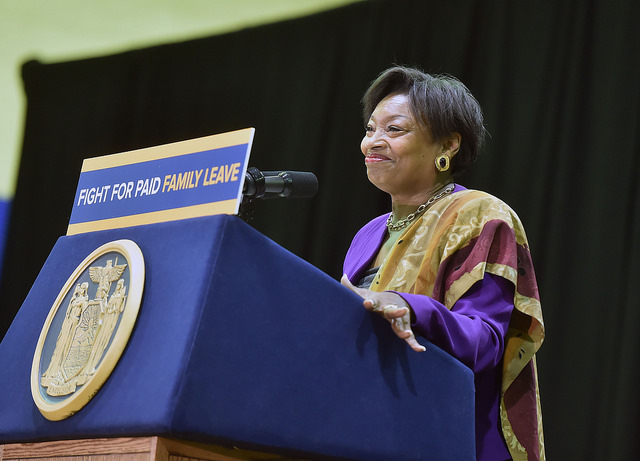This is getting awfully familiar.
Two days after Long Island state senators objected to Gov. Cuomo's congestion pricing plan to raise billions for the crumbling New York City transit system, a new batch of suburbanities, this time from north of the city, is complaining that drivers won't benefit from tolls to save public transit.
"As representatives for Hudson Valley commuters, it is our responsibility to ensure that any congestion pricing plan is not funded from their pockets without ample benefit," the group, which includes Senators James Skoufis, Jen Metzger, David Carlucci, Pete Harckham and Shelley Mayer, said in a statement that was almost exactly the same as the one put out by their Long Island counterparts on Feb. 27.
The senators say they "agree that the subway system is in dire need of repair," but added that "it is imperative that Metro-North, both east- and west-of-Hudson, receive dedicated share of new revenue generated."
That's not currently part of the plan. The $1 billion in fees generated from congestion tolling is supposed to be in a "lockbox" for New York City Transit improvements, which Mayor de Blasio said was a major part of his reasons for supporting the plan. The tolls will raise enough cash to borrow $15 billion towards NYCT President Andy Byford's $40-billion "Fast Forward" plan. Congestion pricing would also improve the experience for drivers by reducing traffic that lowers productivity and makes streets less safe.
Specifically, the suburbanites objected that drivers who cross the new Tappan Zee Bridge or the old George Washington Bridge will not currently get a discount when they later drive into the Manhattan congestion zone below 61st Street — a discount Battery and Queens Midtown tunnel drivers will get.
So the LI Senate Majority delegation insists that "a dedicated revenue stream for LI mass transit be included in the [congestion pricing] proposal." By my estimate., Nassau & Suffolk residents will kick in 8% of c.p. revenues. Are the senators okay with LIRR getting 8% of c.p. $? pic.twitter.com/0UF5vYf3il
— Charles Komanoff (@Komanoff) February 27, 2019
Senate Majority Leader Andrea Stewart-Cousins used exactly the same language that she used two days earlier, saying that she will work with the suburbanites to "ensure that the needs of the region are met."
She described herself as "generally supportive of the congestion pricing concept and the need for a dedicated stream of revenue," adding however that she wants "to see some minor changes that will help all regions of the MTA.”
Cuomo and de Blasio's office did not return a request for comment specifically on the latest revolt. On the Brian Lehrer Show on Friday, the governor started by sarcastically characterizing the opposition. "There will be the 'Save New York! Oppose Congestion Pricing' group," he predicted.
Then he continued:
But congestion pricing has been talked about for decades. All the smart planners, all the environmentalists have supported it. ... To me, it is common sense. You have to reduce congestion in Manhattan. You can walk faster than a bus can move. .... Environmentally, we are losing the planet daily and you have to raise financing for the MTA because we haven't done it for 40 years. What does that is congestion pricing. ... Is there opposition? Of course there is. But life is options. We need the funding: Congestion pricing or you raise the fare on subway riders, which would be worse.
He closed with a reference to his father, who was also a governor.
"Local officials don't like to do anything. 'A legislator who votes for nothing did nothing wrong,' Mario Cuomo [said]."
Charles Komanoff, a congestion pricing expert and analyst, is getting tired of all the carveouts.
"There will be nothing left of the carcass when everyone carves out his piece," he said. "If they want to strangle congestion pricing in the crib, this is how to do it. But if they want to fix mass transit and traffic gridlock, they need to stop the carveout BS."
Ben Fried, the spokesman for TransitCenter, added, "Motorists from the Hudson Valley would pay a small fraction of congestion pricing fees, and New York City would contribute the vast majority. There have to be tight limits on horsetrading, or else the whole deal will fall apart."
After initial publication of this story, de Blasio spokeswoman Jaclyn Rothenberg emailed Streetsblog:
“Our proposal provides a fair framework to get New Yorkers moving again. It’s going to take everyone working together to get to a final plan in this budget, and we’re in conversations with the Legislature to make that happen.”






